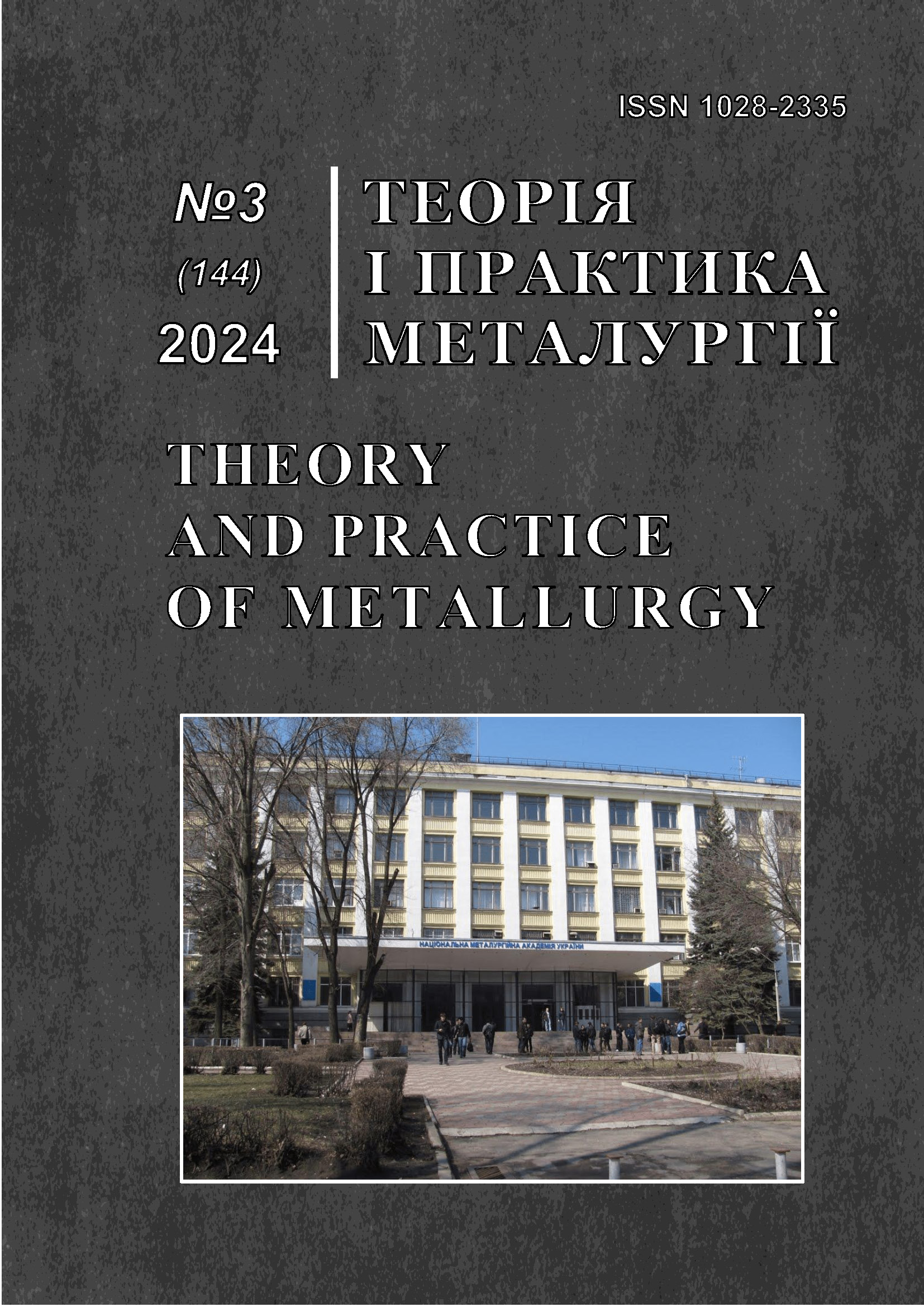Research on particle jamming in the openings of a freely laid sieving surface of a vibrating screen
DOI:
https://doi.org/10.15802/tpm.3.2024.08Keywords:
particle jamming, vibrating screen, sieving surface, metallurgical charge, friction force, deformation, kinematic parametersAbstract
The research aimed to study the phenomenon of particle jamming in the openings of a sieving surface freely mounted in the box of a vibrating screen and to develop an analytical dependence for determining the jamming force. The methodology was based on an analytical approach considering the physico-mechanical properties of materials and the kinematic characteristics of the system. Particle jamming was analyzed as a result of dry friction forces and elastic deformation caused by impact loads. The study included theoretical analysis and numerical modeling, which allowed identifying critical system parameters. The results revealed that particle jamming occurs under specific relationships between inertial force, geometric parameters of particles, and sieving surface openings. An analytical dependence was established to predict the jamming force, accounting for material density, deformation parameters, and the kinematic characteristics of the vibrating screen. The scientific novelty lies in developing a jamming model that considers particle elastic deformation and frictional forces, as well as identifying critical parameters affecting this process. The practical significance lies in the potential improvement of vibrating screen designs and optimization of their operating parameters to reduce opening blockages and enhance the efficiency of metallurgical material sieving. The findings can be applied to the development of more efficient sieving surfaces and the reduction of energy costs in metallurgical production.
References
Zaselskyi, V. Y., Popolov, D. V. et al. (2019). Udoskonalennia obladnannia ta protsesiv vuhlepidhotovky i koksosortuvannia metalurhiinoho vyrobnytstva. Literiia
Abramov, A. A. (2004). Pererabotka, obogashchenie i kompleksnoe ispolzovanie tverdykh poleznykh iskopaemykh. T. 1. Pererabotka, obogashchenie i kompleksnoe ispolzovanie tverdykh poleznykh iskopaemykh. MGGI
Rudyk, V. I., & Zingerman, IU. E. (2009). Spravochnik koksokhimika. T. 2: Proizvodstvo koksa. Izdatels. Dom “INZHEK”
Skladonovskii, E. N., Balanov, V. G., & Nekhaev, G. E. (1990). Koksovyi grokhot s rezinovymi sitami. Metallurgicheskaia i gornorudnaia promyshlennost, (4), 68–69
Zelov, E. A. (1986). Razrabotka i vnedrenie vysokoproizvoditelnykh shikhtovykh grokhotov s neodnorodnym polem traektorii. (Dissertation of candidate of technical sciences, Krivoi Rog)
Zaika, P. M. (1977). Dinamika vibratsionnykh zernoochistitelnykh mashin. Mashinostroenie
Begagoen, I. A., Uchitel, A. D., & Zelov, E. A. (1982). O zasorenii rabochei poverkhnosti grokhotov pri rasseve aglomeratsionnykh kontsentratov. Obogashchenie poleznykh iskopaemykh, 31, 80–83
Uchitel, A. D. et al. (1998). Sortirovka mineralnogo siria i shikhty. Porogi
Beliaev, N. M. (1976). Soprotivlenie materialov. Nauka
Rabotnov, Iu. N. (1962). Soprotivlenie materialov. Gosudarstvennoe izdatelstvo fiziko-matematicheskoi literatury
Uchitel, A. D. (1992). Sozdanie vysokoeffektivnykh vibratsionnykh mashin dlia podgotovki metallurgicheskikh shikht. (Dissertation of doctor of technical sciences, Dnepropetrovsk)
Pisarenko, G. S. et al. (1986). Soprotivlenie materialov. Vishcha shkola
Zaselskyi, V. Y., & Popolov, D. V. (2024). Teoretychni doslidzhennia protsesu zabyvannia siiachoi poverkhni vibratsiinykh hrokhotiv. In Stratehiia yakosti v promyslovosti i osviti. XVIII Mizhnar. konf., Varna, 3–6 June, 2024. pp. 39-43
Andriiashyk, M. V., Verbytskyi, B. I., & Korol, A. M. (2008). Kurs fizyky modulno-reitynhova systema navchannia. Flamenko
Kornilov, O. A. (2000). Opir materialiv: pidruchnyk. LOHOS
Downloads
Published
How to Cite
Issue
Section
License
Copyright (c) 2024 Zaselskyi V.Y., Popolov D.V.

This work is licensed under a Creative Commons Attribution 4.0 International License.
Authors retain copyright of the published papers and grant to the publisher the non-exclusive right to publish the article, to be cited as its original publisher in case of reuse, and to distribute it in all forms and media. Articles will be distributed under the Creative Commons Attribution 4.0 International (CC BY 4.0) licence.
Authors can enter the separate, additional contractual arrangements for non-exclusive distribution of the published paper (e.g., post it to an institutional repository or publish it in a book), with an acknowledgement of its initial publication in this journal.




